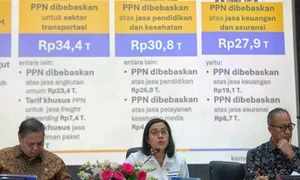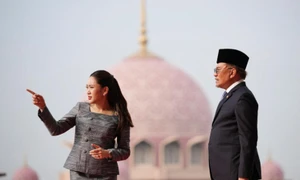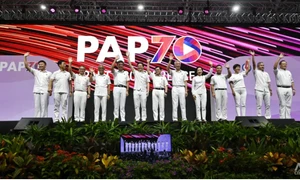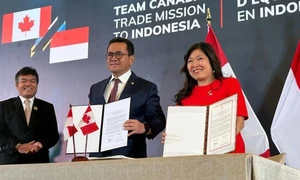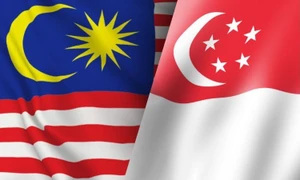
Source: ANTARA
The country’s digital economy totalled 70 billion USD in value last year, which is poised to reach 146 billion USD by 2025.
With digitalisation, more and more business actors in Indonesia are adopting digital technology to innovate and develop their startup companies across the country, and several unicorns have been listed on national and global exchanges, said Minister Hartarto in an event on September 19.
The Indonesian government has also been developing the National Digital Economy Framework to encourage collaboration and foster synergy among all relevant stakeholders and ensure the priority of Indonesia'sdigital economy foundation.
It has continued to focus on developing infrastructure facilities, in both physical and digital forms, ranging from the construction of fiber optic networks, BTS towers, data centers and High Throughput Satellites (HTS), to 5G network development.
Government policies aimed at supporting the development of digital talents will remain unchanged, Hartarto said, adding that currently, Indonesia needs around 600,000 digital talents every year.
The government has been developing human resources through the application of Information and Communication Technology (ICT) as a core part of the educational and vocational curriculum as well as training programmes to assist workers in adjusting to the dynamics of the job market that had changed due to digital technology transformation.
One of the trainings that have adopted digitalisation is the Pre-Employment Card Programme which allowed workers, job seekers, and micro-, small- and medium-sized enterprises (MSMEs)’ owners to acquire new competencies or improve existing skills.

